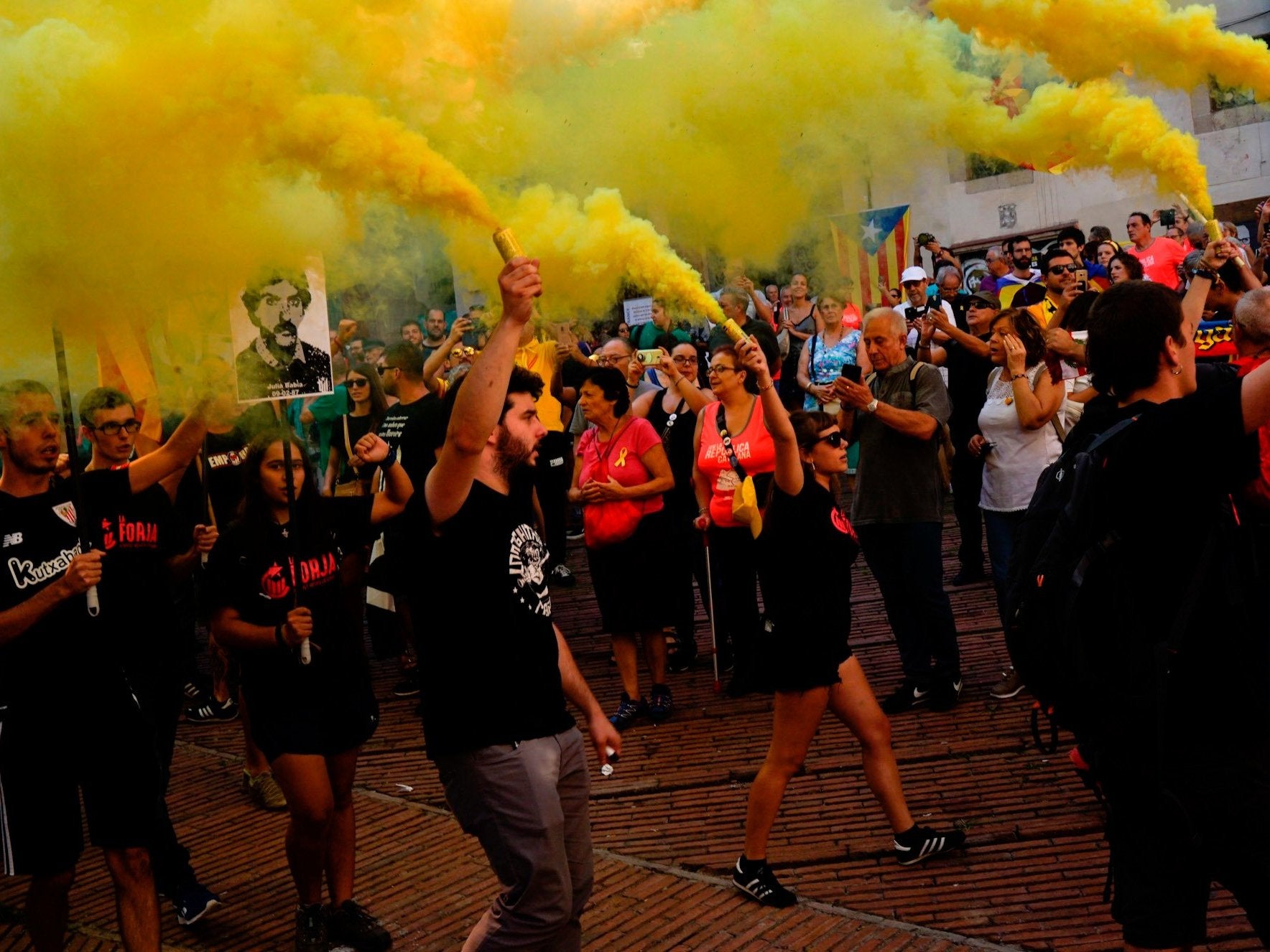Catalonia: Hundreds of thousands take to Catalan streets for first rally since independence bid
Marchers often climb on each other's shoulders to form human towers during 'Diada' celebrations

Hundreds of thousands of Catalans are expected to pack the streets of Barcelona to call for independence from Spain on the region’s first commemorative day since it unilaterally declared independence last year.
Supporters of Catalonian independence have used the annual “Diada” celebrations to promote their cause on a day marking the fall of their coastal capital to Spanish forces in 1714.
Madrid said it was deploying around 600 extra police officers in the area during the anniversary celebrations.
Catalonia’s president, Quim Torra, used the occasion to call for a mass rally to support his campaign for a binding referendum on secession.
“Our government has committed to making the republic a reality,” Mr Torra said in a televised address the night before the rally. “Long live free Catalonia.”
Mr Torra, who succeeded his exiled predecessor after Madrid ended an unprecedented period of direct rule imposed in response to the independence referendum, wore a yellow ribbon in support of the nine activists and politicians jailed for their role in last year’s push for independence.
His administration relaunched its campaign to split from Spain last week.
“A supposedly democratic state should allow a vote with an agreed referendum and without police violence,” the regional government spokeswoman, Elsa Artadi, said on Tuesday.
Debate over the question of secession is heated in Catalonia, which contributes around one fifth of Spain’s economic output and already has a high level of autonomy in areas such as education and health, along with its own police force.
A poll by the Centro d’Estudis d’Opinio in July showed 46.7 per cent of Catalans wanted an independent state while 44.9 per cent did not.
Last year’s Diada, during which marchers often climb on each other’s shoulders to form human towers, took place just days before the regional government held a referendum in defiance of Madrid, which ultimately sent in riot police to try to stop the vote.
Mr Tora’s predecessor and ally, Carles Puigdemont, then unilaterally declared independence, prompting Madrid to impose direct rules on the grounds Barcelona had violated the 1978 constitution which states that the country is indivisible.
Spain’s Socialist prime minister, Pedro Sanchez, who took power in June, has taken a softer approach to the issue of Catalonian independence than his conservative predecessor, Mariano Rajoy.
However, he has firmly stood against allowing a vote on secession or any unilateral attempt by Catalonia to secede.
Subscribe to Independent Premium to bookmark this article
Want to bookmark your favourite articles and stories to read or reference later? Start your Independent Premium subscription today.

Join our commenting forum
Join thought-provoking conversations, follow other Independent readers and see their replies